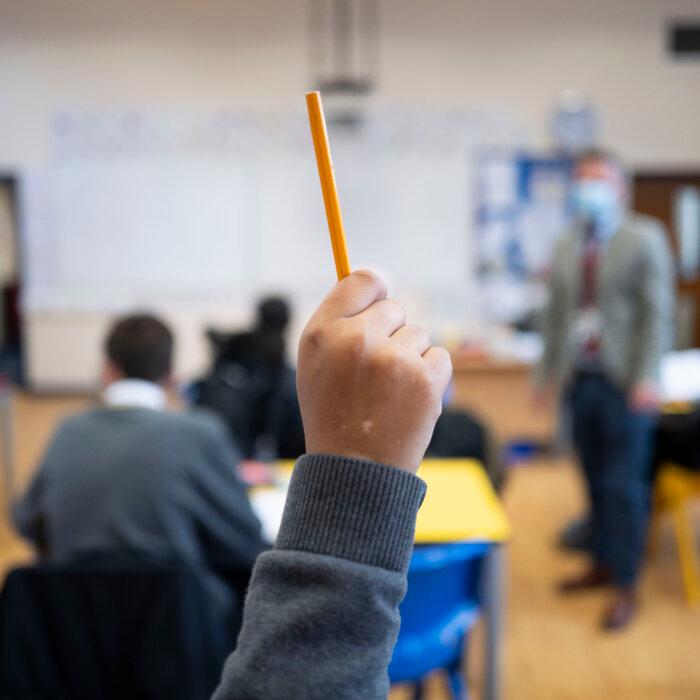Implementing VAT on private school fees could lead parents of children with special needs to seek public funds to cover increased costs, adding financial pressure on local authorities, a think tank has said.
During the election campaign, Sir Keir Starmer said children with special educational needs and disabilities (SEND) who have an education, health, and care plan (EHCP) will be exempt. EHCPs outline the needs and support for children with SEND and are paid for by state-funded local authorities.
However, Tom Richmond, founder and director of the schools think tank EDSK, has told The Epoch Times the plans “would inadvertently create a perverse incentive for parents to seek out a special needs diagnosis and then an EHCP for their child.”
The report warns that “if these numbers rose in response to a new incentive to secure an EHCP to avoid paying VAT on fees, publicly funded local authorities could face an even greater burden on their special needs budgets (which were already facing a £2.4 billion deficit by last year).”
Impact on Schools
Mr. Richmond said the EDSK’s research showed that if schools are forced to record and report EHCPs and adjust their VAT calculations as a result, it “could become a bureaucratic process for schools.”“The issue of independent special needs schools that are not registered as ‘special schools’ also presents complications because as it stands all these special needs schools would need to add VAT to their fees even if they are serving a vulnerable group of pupils with specific needs and/or disabilities,” he added.
The EDSK director said that there was a “great deal of uncertainty” over how parents would behave, but “the wealthiest parents are likely to be the least affected by VAT on their fees for obvious reasons.”
Reforming SEND
The Local Government Association (LGA) told The Epoch Times that it was not in a position to speculate what impact putting VAT on school fees would have on local authorities, but it is committed to calling for SEND reform.In June, the LGA called attention to the urgency of SEND reform, after new figures revealed a record high number of children and young people receiving support from councils through the statements.
Councils issued 84,428 EHCPs in 2023, representing an increase of 26.6 percent on the previous year, with the government noting this figure had increased each year since their introduction in 2014. Requests for an assessment have also increased by 20.8 percent since 2022.
Pupil Numbers
Last year, Labour said it would remove the tax break if it won the next election. In July 2023, the Institute for Fiscal Studies (IFS) published an assessment of the plans, which estimated the net gain to public finances could be between £1.3 to £1.5 billion per year, allowing for a 2 percent increase in state school spending in England.The IFS also said that “if private school attendance drops, state schools will require extra funding to accommodate them.” However, the think tank said that in the short term the effect might be small, as few parents would decide to take their children out of school part-way through key stages of their education.
But “the effect might be larger over the medium to long run,” the IFS said, assuming that it could lead to a 3 to 7 percent reduction in private school attendance and estimating “this would likely generate a need for about £100–300 million in extra school spending per year.”

However, the IFS admitted there was uncertainty over these estimates. Further, report authors said it was “possible that the state sector could easily accommodate extra pupils given that overall pupil numbers across England are due to decline.”
Most recent government data predict that by 2028, there will be 4.18 million nursery and primary school pupils, down 412,000 from the population in 2023.
Labour Says VAT Will Raise £1.51 Billion
In its manifesto, the party said the measures would raise £1.51 billion annually in revenue, which would pay for policies including 6,500 new expert teachers to go into schools where there is a need, such as maths teachers, costed at a projected £450 million.The revenue would also be used to increase teacher training, Ofsted reform, and fund over 3,000 new nurseries.
The party has put a focus on mental health, and said that £175 million of the raised revenue would go on mental health support for every school.
Chancellor of the Exchequer Rachel Reeves will likely use her first budget in the autumn to present the plans in detail, and the measures could take effect from September 2025.
The Epoch Times contacted the Department for Education for comment.







